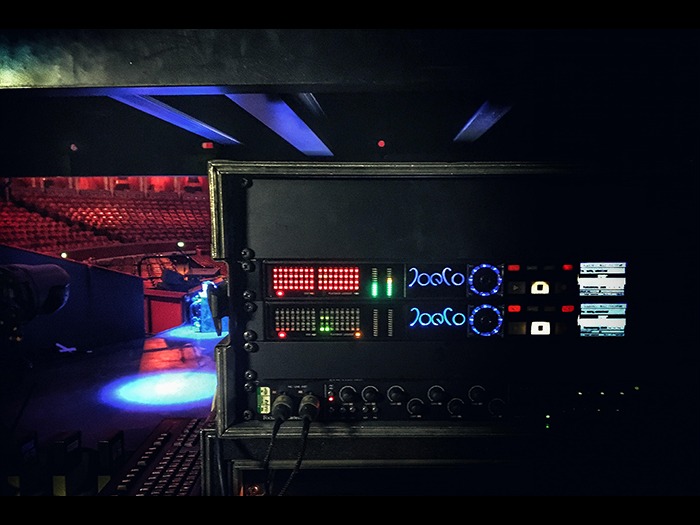Standalone Productions chose 2 BBR64-MADI recorders for the March 2018 series of shows, which included performances by Nile Rodgers & CHIC, Kasabian and Def Leppard.
Since 2000, the Teenage Cancer Trust (TCT) and its patron, The Who’s Roger Daltrey, have been bringing the greatest global music and comedy talents to the Royal Albert Hall for an annual week of shows devised to raise money for young people affected by cancer. Befitting its 18th birthday celebrations, the 2018 series showcased 1 of the strongest line-ups to date, with UB40 (featuring Ali, Astro and Mickey), Nile Rodgers & CHIC, The Courteneers, Kasabian, Def Leppard, comedian Russell Howard and Daltrey himself as headliners.
In previous years, performances by artists including Noel Gallagher and The Who have gone on to yield acclaimed live album and DVD/Blu-ray releases, so recording shows for posterity in the highest-possible audio quality has always been important. Given the charitable nature of the concert series, and the fact that shows are often recorded in a speculative manner with no confirmed release or platform in mind, being able to capture shows cost-effectively is also critical.
In the run-up to this 2018’s TCT events, Gareth Johnson from music production company Stand Alone Productions undertook the search for a portable recording system that would be able to record the shows for possible stereo and surround mixing, broadcast and commercial release, meaning that 48kHz/24-bit audio capability was essential. The system also needed to be conducive to quick-learning by individual acts’ FOH engineers, and hence incorporation into their favoured workflows.
Johnson was already aware of the JoeCo brand when his search commenced, but when he took a closer look at the BlackBox recorders it soon became evident that he had arrived at a potential solution. The mission-critical-ready multi-track recorders “certainly seemed to be saying the right things, so it was really a matter of being certain of their reliability. JoeCo were confident in their products, and a week before the shows we sent them some drives to test. They ran them full on for a couple of days and there were no problems at all, which reassured us.”
Consultation with JoeCo led Johnson to determine that a pair of BlackBox BBR64-MADI recorders, each of which can record and replay up to 64 channels of MADI data in a unit occupying just 1 unit of rack space, would get the job done with capacity to spare. “Shortly before the concerts everything was shipped down to the Royal Albert Hall, we pressed record, and I am glad to say that everything worked out well. I am very happy with the quality of these recordings.”
As the busy week of shows progressed, Johnson was impressed by the “straightforward, no-nonsense nature” of the JoeCo BlackBox recorders, a real asset when it came to managing the quick turnarounds between shows and sound teams. The ability to use the BBR64-MADI’s USB port and quickly drop recordings onto Stand Alone’s drives at the end of each evening was also welcome: “There was no long waiting around for a backup – it was just ‘grab the drive and go’, which was great.”
Some of the visiting engineers were already familiar with JoeCo products, but across the board Johnson said that they were “really impressed with the recorders’ ease of use”. Johnson himself said that the BlackBox units “saved the charity a lot of money and made my life easier”, to which extent he is now looking forward to trying out the forthcoming JoeCo Cello desktop audio Interface with a view to using it within his own room at Metropolis Studios in West London: “If it sounds as good as JoeCo’s other stuff, I can’t wait to give it a whirl!”


